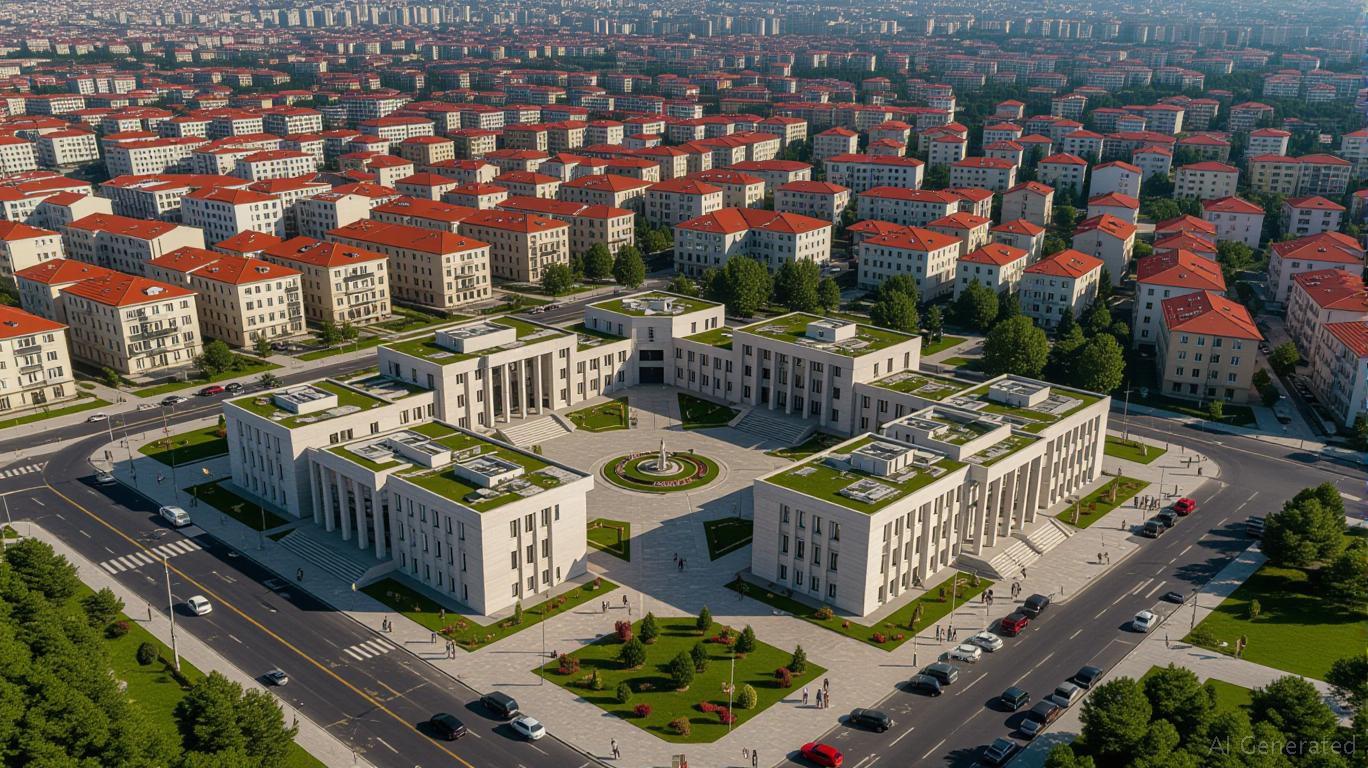Kosovo’s political paralysis since February 2025 has become a flashpoint for regional instability, casting a shadow over investment opportunities in the Western Balkans. With 21 failed attempts to elect a parliamentary speaker and no coalition in sight, the institutional deadlock has stymied progress toward EU integration, frozen critical funding, and intensified tensions with Serbia. For investors, this scenario underscores the high stakes of geopolitical risk in a region where political compromise is elusive.

The Institutional Deadlock: A Barrier to Reform
Prime Minister Albin Kurti’s Vetevendosje (VV) party holds 48 seats in the 120-seat parliament—a far cry from the 61 needed for a majority. Opposition parties, including the Democratic Party of Kosovo (PDK) and the Alliance for the Future of Kosovo (AAK), have rejected Kurti’s nominee for parliamentary speaker, Albulena Haxhiu, accusing her of being a divisive figure. The refusal to form a coalition or transitional government has left Kosovo in a caretaker status, halting reforms required for EU membership and freezing €6 billion in Western Balkans Growth Plan funds.
The EU’s patience is thinning. Brussels has linked the release of these funds to the formation of a functional government, while maintaining punitive measures imposed in 2023 over tensions in northern Kosovo. These sanctions, including suspended diplomatic contacts and development aid, have already cost Kosovo’s economy an estimated €3 million daily. For investors, this translates to delayed infrastructure projects, stalled privatizations, and an uncertain timeline for regulatory reforms critical to business operations.
Geopolitical Risks Escalate
Kosovo’s political crisis is intertwined with its unresolved status in the eyes of Serbia and five EU member states. The Association of Serb Municipalities (ASM) draft statute, which Kosovo has refused to submit to its Constitutional Court, remains a sticking point for the EU. Serbia’s President Aleksandar Vučić and Kosovo’s opposition parties have criticized Kurti’s hardline policies in northern Kosovo, including a ban on the Serbian dinar and increased police presence. These actions risk reigniting ethnic tensions, deterring cross-border trade, and destabilizing energy corridors like the Greece-Balkan-Italy gas pipeline.
Meanwhile, the U.S. role is clouded by uncertainty. A potential shift in U.S. policy under a Trump administration could lead to reduced support for NATO’s KFOR mission, which has long been a stabilizing force. Kosovo’s pursuit of bilateral security agreements with the UK and other EU states highlights its vulnerability to geopolitical shifts. For investors, this volatility creates risks in sectors like energy and transportation, where geopolitical instability can disrupt supply chains and infrastructure projects.
Economic Costs and Investment Implications
The stalemate has already taken a toll on Kosovo’s economy. With unemployment at 30%, the lack of government action has stifled public investment and private sector growth. The European Bank for Reconstruction and Development (EBRD) estimates that Kosovo’s GDP growth could drop below 2% this year—a stark contrast to its pre-crisis projections of 3.5%.
Investors should approach the region with caution:
1. Avoid Direct Exposure: Until a government is formed, sectors reliant on public funding—such as construction or utilities—are high-risk.
2. Look for Indirect Opportunities: Consider sectors less tied to political stability, like IT or remittance-driven services.
3. Monitor EU Diplomacy: A breakthrough in Kosovo-Serbia dialogue or the lifting of EU sanctions could unlock a wave of investment in infrastructure and energy.
4. Hedge Against Geopolitical Risks: Use derivatives or regional equity hedges to mitigate exposure to Balkan markets.
Conclusion: A Crossroads for Stability
Kosovo’s political crisis is not merely an internal dispute—it is a test of the Western Balkans’ ability to unify amid geopolitical fractures. While the appointment of a new EU special envoy offers hope, the path to compromise remains fraught. For investors, patience and diversification are key. The stakes are immense: prolonged instability could derail Kosovo’s sovereignty aspirations and regional integration, while a breakthrough could unlock a decade of growth. The next few months will determine whether this crossroads leads to progress—or further decline.